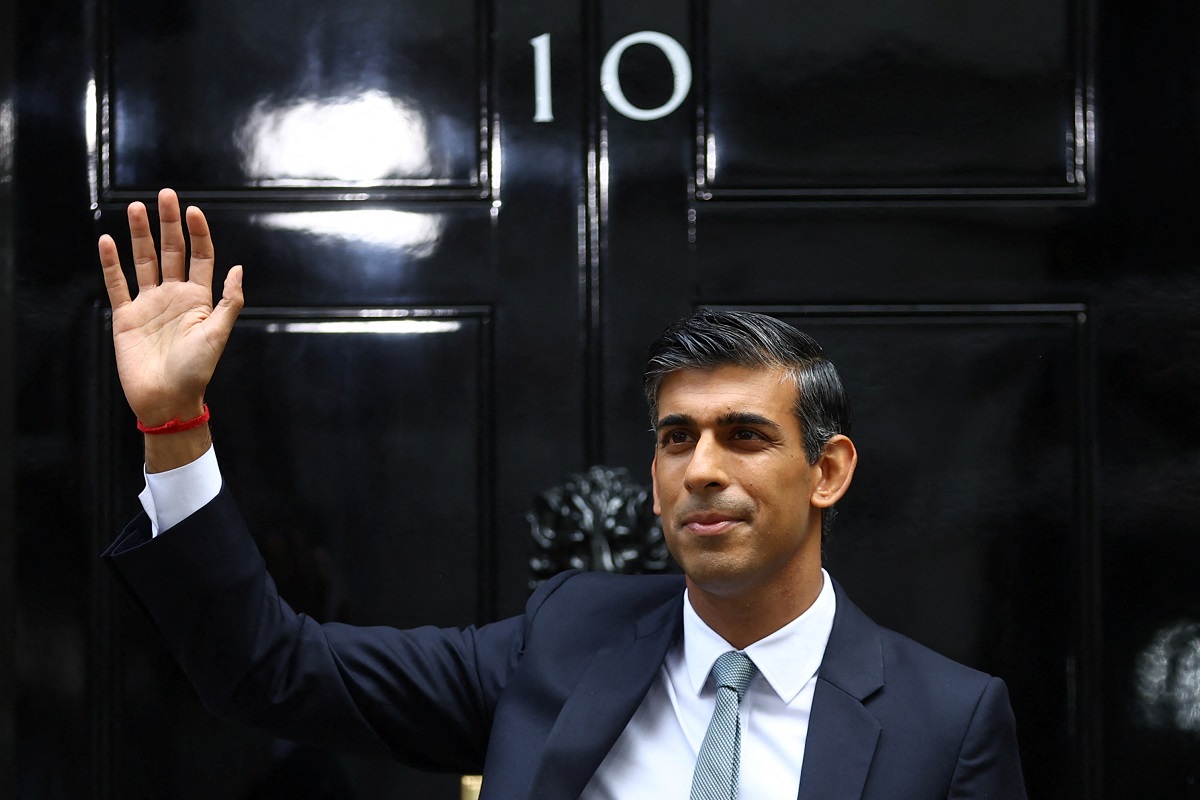- UK Prime Minister Rishi Sunak gave his first foreign policy speech on Monday evening.
- Sunak has no foreign policy profile and hasn’t outlined a strong foreign policy strategy.
- He must prepare Britain for post-Brexit geopolitical difficulties.
UK Prime Minister Rishi Sunak took office last month with hopes of stabilizing his party and country. He must prepare Britain for post-Brexit geopolitical difficulties while the European battle proceeds.
On Monday evening, he gave his first foreign policy speech.
Sunak has no foreign policy profile. Although he supports European responsibilities and liberal principles, he hasn’t outlined a strong foreign policy strategy.
“The presumption was that he was close to [former Prime Minister Boris] Johnson on foreign policy, supportive of Ukraine after Russia’s invasion, and cautious of China’s influence on the UK,” said Victoria Honeyman, an associate professor of British politics at the University of Leeds.
“It’s hard to say. Sunak’s background and his wife’s family and business ties in India have sparked speculation of closer relations with India.
Sunak has no direct experience outside of financial markets in the world geopolitical arena, unlike Johnson and Liz Truss. Inexperience could be a plus.
Unknown on foreign policy, he was likely less idealistic and more pragmatic. Given his past as chancellor and in financial services before entering politics, we may anticipate him to emphasize economic over security or political concerns, said James Strong, a senior lecturer in British politics and international affairs at Queen Mary University of London.
His address on British foreign policy and Britain’s position was widely anticipated.
Sunak’s speech made it obvious that liberal ideals would be important and that he wanted to expand Britain’s influence.
Sunak’s keynote speech at the annual Lord Mayor’s Banquet in London was about freedom and transparency. Sunak said this wasn’t possible simply standing stationary.
Britain must “do more” to safeguard freedom and openness, Sunak said.
Sunak described his foreign policy agenda for Britain as “robust pragmatism” during his visit to Kyiv and Ukraine’s president last week.
The visit showed Britain’s commitment to Ukraine despite a government transition. While Britain has been at the vanguard of the Western response to Russian aggression, questions were raised about Sunak’s defense spending commitment.
Sunak said Britain would support Ukraine “as long as required.”
He promised to continue or enhance military aid next year.
Sunak also said he’d boost Ukraine’s air defenses to safeguard its people and infrastructure.
Sunak stated the UK should “stop worldwide dependence on authoritarian governments, starting with Russian gas.”
In contrast to Ukraine, he sent mixed signals regarding future relations with China.
Since David Cameron and Xi Jinping had a pint of beer in a tavern in 2016, Britain’s relations with China have deteriorated.
The UK has treated China more cautiously in the last five years. This was motivated by spying suspicions, US-China relations, and infrastructure spending, Honeyman added.
British-China policymaking is delicate. Protests against COVID in numerous Chinese towns could make it difficult to approach Beijing, and the detention of a BBC journalist in Shanghai didn’t help.
The US administration has toughened its stance against Beijing and prohibited IT and surveillance imports and exports.
Other countries, particularly Germany, make Chinese takeovers of critical technologies more difficult and are rethinking relations with Beijing.
Sunak emphasized his openness to work with China on Monday, saying Britain couldn’t “ignore China’s centrality in world affairs” (global economic stability, climate change).
While acknowledging Beijing’s “intensifying competitiveness,” he urged against “simplistic” Cold War language.
Strong emphasized that pragmatism could lead to internal tensions.
Internal Conservative Party politics make a softer stance on China difficult. The Conservative Party has grown increasingly more China-sceptic in recent years, with the emergence of the hawkish China Research Group – an intentional echo of the European Research Group that advocated for a hard Brexit – helping to develop a much tougher internal line,” Strong said.
Along with China and Russia, Sunak said creating strong ties in Europe will be a priority. He also said Britain will be interested in deepening partnerships in other regions, such as the Indo-Pacific.
[embedpost slug=”british-pm-sunak-uk-china-golden-age-is-finished”]





















